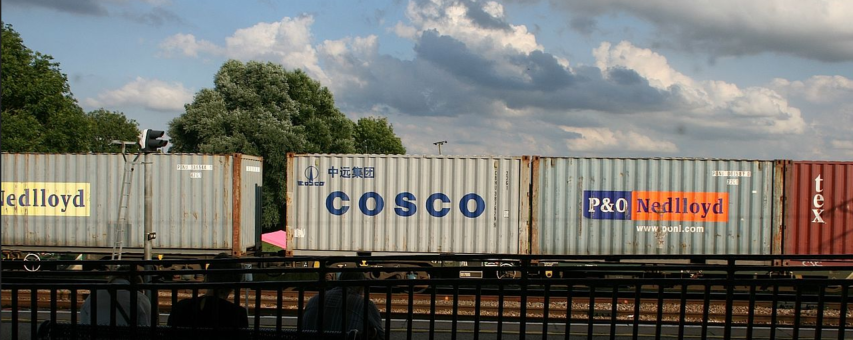Is there anything as ubiquitous as the humble shipping container these days? There’re used for all kinds of “second career” purposes, but it’s easy to miss just how important to the growth in international trade … and the rise in global wealth … those containers have been. Marc Scribner gives a quick shout-out to the container:
One of the most underappreciated drivers of the modern global economy is the humble shipping container. Widely adopted internationally in the second half of the 20th century, intermodal containers largely supplanted break bulk cargo — the bags, barrels, pallets, and crates that must be individually loaded and unloaded onto ships, railcars, and trucks.
Intermodal containers are standardized in size and design, allowing them to be stacked onto large container ships, which can transport thousands of containers. In port, containers can be lifted onto railcars and flatbed trucks, enabling quick access to inland distribution centers and manufacturing facilities.
Containerization dramatically reduced costs all around. Fewer dockworkers were needed to load and unload vessels and larger ships were built thanks to stackable containers. Fewer ports were needed to transport an increasing volume of goods and freight insurance rates fell due to their durability and securability.
These transportation cost declines due to containerization have been estimated to have increased the volume of world trade far more than the proliferation of free trade agreements since the end of World War II. This means, according to recent research published in the Journal of International Economics, that while trade policy was important (and CEI is a strong supporter of trade liberalization), technological change in the shipping industry was responsible for enabling more trade among countries than improvements in government policy. It is important to note that for global commerce going forward, however, government policy is likely to be more important as containers have already been widely adopted, particularly in wealthy industrialized countries.




